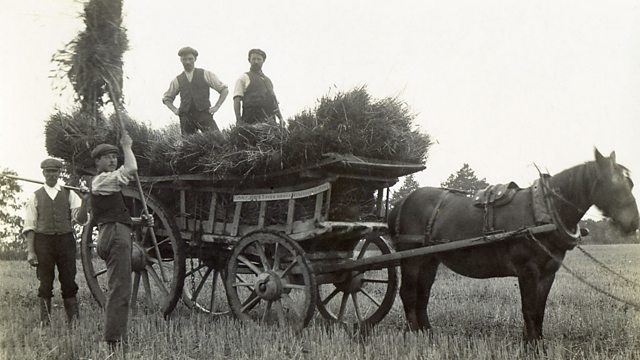Upton Bishop, Herefordshire: The Disenchanted Soldier
Why this soldier became disenchanted from politics and institutions
When World War One broke out in 1914, Alfred James was running Marsh Farm in Upton Bishop. His father, George, and brother, Arthur, had both died and his other brother, Frank, had left for Canada, never to be heard from again. He was supporting his mother, Ann, and two sisters on the mixed farm, which the family rented.
In the summer of 1915, he was at the weekly livestock market in Ross on Wye when he was handed a white feather by a woman and scorned by her. He felt ashamed and, after gathering in the summer harvest, he harnessed a horse and drove to the recruitment centre in Hereford to enlist.
Gunner James 161267 joined the 30th Siege Battery of the Royal Garrison Artillery, which was then entirely horse drawn. He was sent to France and became the number two man on the big guns that fired shells from miles away. In June 1916, they were told to “fire at will” for seven days and nights. On 19 September 1918, he was hit by shrapnel and admitted to the 18 Chicago USA Military Hospital with a severe gunshot wound to the head but he survived. On 12 December 1918, he was transferred to the Army Reserve and demobbed.
Left deaf in one ear from his wounds, he walked home from to find that his sisters and mother had been evicted from the tenancy of the farm and moved to a small, rented cottage. Their landlord had given the tenancy to another family claiming: “There is no man left to tend the land”. Alfred found this too hard to bear and never again used his vote in any election from parish council to parliament nor trusted any bank or institution.
Location: Marsh Farm, Upton Bishop, Herefordshire HR9 7UP
Image shows Marsh Farm, courtesy of Alfred’s grandson; Keith James, who narrates the story
Duration:
This clip is from
Featured in...
![]()
Protest—World War One At Home
Race riots, rent strikes and conscientious objectors' resistance
![]()
�鶹�� Hereford & Worcester—World War One At Home
Places around Hereford & Worcester that tell a story of World War One
More clips from World War One At Home
-
![]()
The loss of HMY Iolaire
Duration: 18:52
-
![]()
Scotland, Slamannan and the Argylls
Duration: 07:55
-
![]()
Scotland Museum of Edinburgh mourning dress
Duration: 06:17
-
![]()
Scotland Montrose 'GI Brides'
Duration: 06:41







